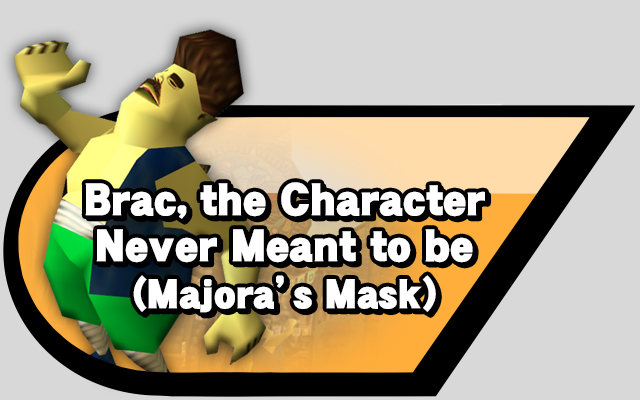
See this guy? Any hardcore Zelda fan would know that his name is Brac. Well…only in America and on the N64. He doesn’t have a name in Japan, nor does he have one in Europe. Despite this, he still has his own page on Zeldapedia.
His name comes from another carpenter who mentions him in the original U.S. release.
Original Text:
ッショ! 今夜もテツヤか・・・
完成すんのかな アレ
| US | EUROPE/GAMECUBE |
|---|
| Tsk! Is Brac working t’night? I wonder if that’ll get finished. |
Heigh-ho, heigh-ho! It looks like another all-nighter. I wonder if that’ll get finished. |
Original Text:
ッショ!やっぱりテツヤか・・・
間に合うのかな コレ
| US | Europe/GAMECUBE |
|---|---|
| Tsk, tsk, Brac… I wonder if this’ll make it? |
Heigh-ho, heigh-ho! It’s gonna be another all-nighter like I figured. I wonder if it’ll get finished on time. |
The Europe/Gamecube updated text accurately reflects the actual meaning of the Japanese text. The American translator most likely mistook テツヤ for a name, instead of “all-night” as it was written in katakana and not hiragana. テツヤ is a fairly common name, so it’s an understandable mistake. When it was being ported to PAL, Nintendo probably became aware of this issue and updated the English test for subsequent releases.
- Smash Ultimate Development Timeline - May 16, 2020
- Straight from the Source: Koji Igarashi on Castlevania in Smash, Bloodstained - October 16, 2018
- Sakurai Discusses Isabelle, Echoes, and Newcomers - September 26, 2018









[…] Okay, I have a sizable rant about Duck Hunt and Europe. For those of you who are unaware, the European version of Smash 4 has renamed the character Duck Hunt to Duck Hunt Duo, probably in an effort to distant the character name and the game title. This makes sense. However, the localization team in Europe failed to understand Duck Hunt as a character. Duck Hunt is a team of three — the duck, the dog and the hunter (the guy with the NES Zapper). It’s mentioned in the game in both Japanese and English versions, shown in reveal trailer and even said by Sakurai in an interview. To me- there is no contest, the European team messed up. I believe that the origin of the this confusion could be this title. 共演 means “to perform together, appearing together, co-starring”. However, Japanese does not have plurals. Therefore it could easily mean “two or more [actors] performing together,etc”. In fact, the Japanese definition for the word says that it’s two or more. Don’t worry Europe — America invented a character in Majora’s Mask that didn’t exist. […]